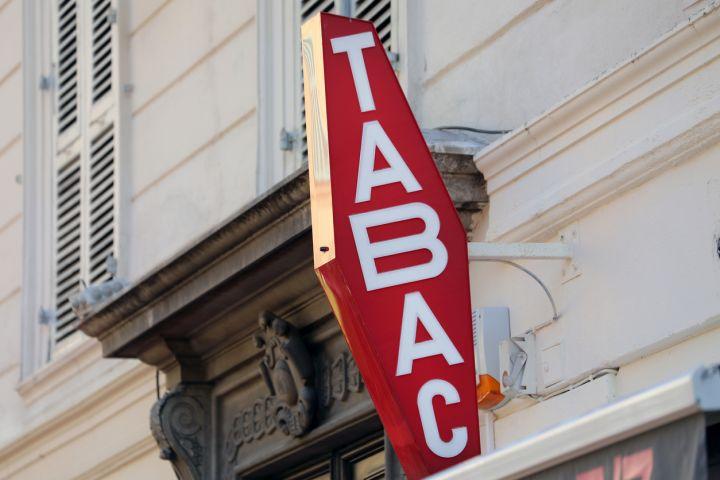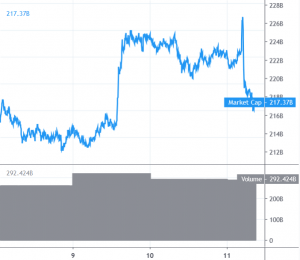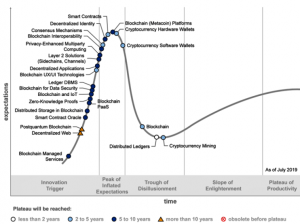Crypto Briefs is your daily, bite-sized digest of cryptocurrency and blockchain-related news – investigating the stories flying under the radar of today’s crypto news.
Adoption news
- 5,200 French tobacco stores will begin selling Bitcoin again after a false start. The project is the brainchild of Keplerk, who initially announced its Bitcoin sales plan in November last year. However, after launching the project at tobacconists across the country in January, the company abruptly pulled the plug on February 27. Per BFM TV, Keplerk now intends to try again, and has begun to sell 50, 100 and 250 euro Bitcoin coupons. The company says that it has resolved the issues that blighted the initial launch, whereby customers had to wait up to eight hours for BTC to arrive in their wallets.
- MouseBelt, an ecosystem that promotes blockchain innovation, announced their newest initiative to drive blockchain innovation through education, called the Blockchain Education Alliance, which will work to provide university students with the connections and knowledge necessary to enter the workforce with practicable blockchain skills. Per the announcement, the alliance's first members are StellarDevelopment Foundation, Tron, Hedera, Ontology and others.
- Hancom, South Korea’s answer to Microsoft, says it has incorporated blockchain technology in its latest office suite Hancom Office 2020. The company says, perChosun, that the software will let users check the authenticity and revision history of a range of documents using blockchain technology, and expects the function to be of particular use to real estate and financial services companies.
- The seller of USD 100,000 virtual car, Animoca Brands and F1 Delta Time announcedthat the “Japan Edition 2019” official Formula 1 (F1) non-fungible token (NFT) will go on auction starting 14 October 2019 at 9 am (GMT) and ending 17 October 2019 at 9 am (GMT). (Learn more: Animoca Brands Bets Big on Blockchain)
- In an opinion piece authored by Venezuela-based cryptocurrency journalist Juan Ibarra for Criptomonadas, the author claims that every extra international sanction imposed on the country is pushing citizens “closer to cryptocurrencies.” Ibarra claims that freelancers in Venezuela are facing “multiple barriers,” which Bitcoin and other tokens can help overcome – meaning that more and more people are turning their backs on PayPal, Tansferwise and other similar platforms.
- MyCrypto, company that provides a tool for generating Ethereum wallets and managing ERC-20 tokens, announced the launch of the beta version of their new website, which comes, among other updates, with a redesigned dashboard and multi-account management functionality, which enables users to access multiple wallets from their home dashboard.
Exchanges news
- The government of Venezuela is claiming a breakthrough for its oil-backed Petrocryptocurrency. Per pro-crypto NGO Asonacrip, the state-run cryptocurrency regulator Sunacrip has OKed the country’s first Petro-to-fiat pairing at the Amberes Coinexchange – allowing citizens to trade Petro for bolivars for the first time. Amberes has previously received an operating permit from Sunacrip. Asonacrip posted screenshots to back up its claims in a Twitter post.
Siguen los avances, el exchange venezolano @AmberesCoin anuncia la incorporación del par PTR/VES, permitiendo de esta forma cambiar Bs a Petros en el mercado secundario. #ULTIMAHORA #algoritmo #BuenMartes
36 people are talking about this
- A judge has ruled in Bitfinex’s favor in the matter of preparing documents for its appeal against the New York Attorney General’s office’s case. As previously reported, the exchange, its operator iFinex and its stablecoin Tether have all been embroiled in a bitter and long-running dispute with the Attorney General, which has accused it of foul play in the matter of a USD 850 million inter-company loan. The Attorney General had demanded the release of key Tether documents – but per court documents uploaded by CoinDesk, the New York Supreme Court Justice turned down the request. The same court, however, upheld a ruling that prevents Tether from lending any more money to Bitfinex.
- OKex Korea has announced that it will launch a review into its proposed delisting of ZCash and Dash. The exchange says that the delisting has been put on ice pending a review, saying it will re-examine the two token’s compliance with the FATF’s Travel Rule.
- Japanese cryptocurrency exchange bitFlyer says it has introduced a new fraud alert system, as well as a fraudulent login detection service. Per App Times, the solution will help individuals and corporate users to avoid spoofing attacks. It will also help catch criminals trying to create accounts using fake names, and detect money laundering accounts.
- Coinbase announced the Coinbase Pro mobile app - a "mobile-first trading platform that was built with a focus on speed, ease of use, and a clean, streamlined trading experience," the announcement says.
Investing news
- Founder of the payment app Metal Pay Marshall Hayner and the young crypto millionaire Erik Finman, who together started the Metal Foundation, have launched a USD 1 million venture fund, called Metal VC, to invest in blockchain startups. CoinDesk reports that the fund will focus on micro and angel investments in early-stage companies involved in banking and decentralized finance.
- Neo bank Juno has raised USD 3 million seed round to build a platform on Ethereum, which will leverage cryptocurrencies and Ethereum protocols to provide services like high-yield savings and debit cards. It is expected to launch next year in selected markets. Per the Economic Times, investors include Dragonfly Capital, Polychain Capital and Sequoia Capital’s Surge.
- The Swedish Enforcement Agency is auctioning off the digital currency, in total 4.59 bitcoins (USD 38,200). In their last such auction in 2017, the highest bid was SEK 43,000 (USD 4,373), which was above the estimated market value of SEK 27,600 (USD 2,800).
- SE Digital Co., a subsidiary of Thai financial services firm Seamico Securities Plc, has got an approval from the Securities and Exchange Commission to fully operate in Thailand as an Initial Coin Offering (ICO) Portal, the Bangkok Post reports, which will be the beginning of the regulated digital capital market in Thailand. SE Digital plans to launch the country’s first investment token with a target transaction size between THB 2 billion (USD 66 million) and THB 3 billion (USD 99 million).
- Blockchain company Iconloop has raised KRW 10 billion (more that USD 8 million) from seven investment companies participating in a Series A funding round, including Korea Technology Finance Corporation and T.S. Investment, the announcement says.
















